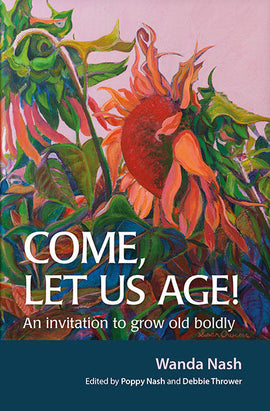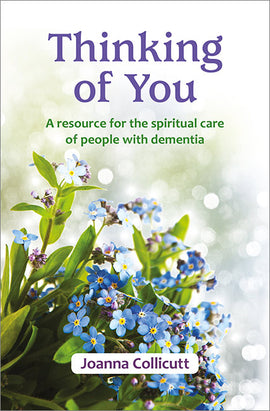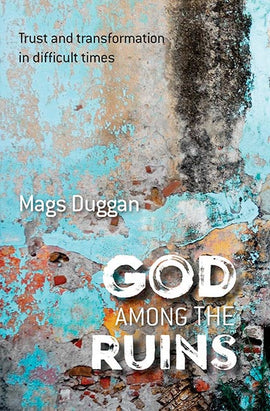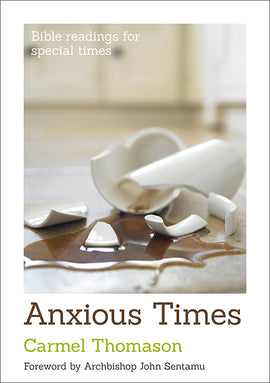Thinking of You: a resource for the spiritual care of people with dementia
Product Type: eBook with Glassboxx
Digital eBook Only - This book approaches dementia from a number of angles: biological, psychological, sociological, and theological. After an introduction explaining the multifaceted nature of this set of conditions, some possible theological responses are offered to such questions as: what is the nature of human identity? How can someone with severely impaired cognition have a full spiritual life? The book's final two sections are predominantly practical, addressing the spiritual care of the affected individual and how to help churches support affected individuals and their carers. This final section includes resources for ministry in residential care homes.
This item is available to purchase from BRF Ministries with orders being fulfilled by Glassboxx, our digital service provider.
| Title | Thinking of You: a resource for the spiritual care of people with dementia |
| Author | Joanna Collicutt |
| ISBN | |
| Description | Digital eBook Only - This book approaches dementia from a number of angles: biological, psychological, sociological, and theological. After an introduction explaining the multifaceted nature of this set of conditions, some possible theological responses are offered to such questions as: what is the nature of human identity? How can someone with severely impaired cognition have a full spiritual life? The book's final two sections are predominantly practical, addressing the spiritual care of the affected individual and how to help churches support affected individuals and their carers. This final section includes resources for ministry in residential care homes. ContentsPart 1: Thinking about dementia
Part 2: Thinking about the person with dementia
Part 3: Thinking of you: the spiritual care of people with dementia
Part 4: Thinking about us: dementia-friendly churches
|
| Details |
|
Digital eBook Only - This book approaches dementia from a number of angles: biological, psychological, sociological, and theological. After an introduction explaining the multifaceted nature of this set of conditions, some possible theological responses are offered to such questions as: what is the nature of human identity? How can someone with severely impaired cognition have a full spiritual life? The book's final two sections are predominantly practical, addressing the spiritual care of the affected individual and how to help churches support affected individuals and their carers. This final section includes resources for ministry in residential care homes.
Contents
Part 1: Thinking about dementia
- Chapter 1 A medical approach to dementia: 'Old-timer's disease'?
- Chapter 2 A biological approach to dementia: the fading brain
- Chapter 3 A social approach to dementia: not gone but forgotten
Part 2: Thinking about the person with dementia
- Chapter 4 I think therefore I am?
- Chapter 5 Beyond 'I think therefore I am'
- Chapter 6 God thinks therefore I am
Part 3: Thinking of you: the spiritual care of people with dementia
- Chapter 7 Being present to the person with dementia
- Chapter 8 Meaning-making in dementia
- Chapter 9 Re-membering the person with dementia
Part 4: Thinking about us: dementia-friendly churches
- Chapter 10 Full inclusion
- Chapter 11 Real belonging
- Chapter 12 Celebration
- Chapter 13 Connection
- Chapter 14 Safe enough to play
The Revd Dr Joanna Collicutt is Lecturer in Psychology and Spirituality at Ripon College Cuddesdon, Oxford Diocesan Advisor for the Spiritual Care of Older People, and also ministers in a parish. Her other books include Jesus and the Gospel Women, The Dawkins Delusion? (with Alister McGrath) and Meeting Jesus (with Jeremy Duff).
The Julian Meetings Magazine (April 2018). Review by Gail Ballinger
Joanna Collicutt is an experienced clinical neuropsychologist who for many years has worked with people living with conditions affecting the brain, including dementia. An Anglican priest and Advisor for Spiritual Care for Older People in Oxford (Anglican) Diocese.
The book first describes the medical, biological and social aspects of dementia. The biological aspects have excellent line drawings which help to explain various forms of dementia. I found it very accessible - e.g. likening changes in retrieval of memories to organising / finding things in an airing cupboard. Joanna conveys the reality of experiencing dementia and how it might feel: she tells of a person being afraid to enter some-one's front door because the doormat looked like a hole in the ground and they feared they might fall into it.
Part two is about the person - what might dementia feel like for them; what is the nature of human identity; how is it possible to have a full spiritual life with dementia. I think therefore I am leads to God thinks, therefore I am. Part three is about spiritual care and being with the person with dementia. The final chapters give practical suggestions about dementia friendly churches, full inclusion, being connected, celebration and play. She also refers to support in residential homes. Might some of this information help Julian Meetings?
Review by Gail Ballinger
'The Door', June 2017
Dementia is a topic which is regularly highlighted by the media, not only as a subject associated with the increasing number of elderly people in our society but also with reference to well-known individuals found to be suffering from the condition. Joanna Collicutt's inspiring book is a timely, carefully referenced and annotated publication providing helpful advice and dispelling misconceptions.
Divided into four distinct parts, this resource begins with a medical approach to understanding dementia, first making two important points; that in medical terms dementia is a symptom rather than a disease and that occasional confusion and failing memory, not uncommon in older people, need not be a sign of something more sinister. Using helpful diagrams, the writer describes clearly and succinctly the various types of dementia and their physical causes.
Part two moves on from analysing the condition to considering the sufferer. Using the analogy of the airing cupboard, the writer discusses memory, implicit and explicit. She examines the phrase 'trapped in the present', comparing it to 'life in God's now' and asking, 'How are we to make sense of the experience of dementia theologically?'
In Part Three, dealing with the spiritual care of people with dementia, the word 're-membering' takes on a new significance, with references to 'person-centred' psychotherapy, the principle of authenticity, listening to body language and the importance of touch. Various aids to re-membering are suggested, including a this-is-my-life book and a memory box. Incidentally, it is recognised that 'being there' for a dementia sufferer has its cost, with a helpful section on dealing with one's own feelings.
In Part Four dementia-friendly churches are examined, the emphasis being on a community that is friendly to all. Practical suggestions, which will benefit both the physically and mentally impaired, are made to enable full inclusion. Also in this section is a suggested form of worship and a simple weekday service of celebration. Finally, in a chapter entitled 'Safe enough to play' the writer discusses types of abuse and the required response should there be evidence of this.
Written from a Christian perspective, this book is both informative and challenging. It evidences great skill in dealing with complex concepts clearly and comprehensibly, and is a resource which should be on the bookshelves of all clergy and those involved with pastoral care.
The Revd Thelma Shacklady
Methodist Recorder, June 2017
In 'Thinking of You: A resource for the spiritual care of people with dementia, Joanna Collicutt writes as a priest in the Church of England and as a clinical neuropsychologist. This book is an excellent introduction to the subject of dementia and a very practical spiritual resource for churches. An easy to understand, medical approach to dementia is outlined at the beginning.
I found Joanna's analogy of an airing cupboard to describe the experience of dementia very useful. Newly-weds are given household linen and these items are neatly and carefully stored on the bottom shelf of the airing cupboard. As the years go by, easy-care sheets are placed on top of these -- then underpants and socks are thrown on top. As long as the door opens easily, all is well and items can be retrieved. But what if the door slowly closes? You now reach in through a narrowing gap to find what you need; it will be much easier to access the orderly folded linen at the bottom and it will be pure luck if you find a sock.
In the same way, a person living with dementia will find that memories which are deeply embedded and laid down in an orderly fashion are easiest to access. Joanna makes a distinction between explicit memories and implicit ones: an example of an implicit memory would be a hymn you do not recognise until the music starts and you find you know it. A person with dementia might not remember a visit from a relative or friend (explicit memory), but may be aware of kindness and touch (implicit memory). God holds us in mind, as the father of the prodigal son holds his absent son in mind. Although his son is in a distant land he is never forgotten.
I found the most moving part of the book in the author's reminder about Easter in relation to dementia. On Good Friday Jesus is stripped of his capacities and on Holy Saturday he descends into the underworld to be with those forgotten by the world -- a profound solidarity. Joanna sees the calling of the churches to 'pick up the stitches which have been dropped'. There is practical advice on how to be with a person with dementia: we may allow a person their feelings of joy and despair, which can be incredibly intense.
Above all, we need to cultivate 'an attitude of mindfulness to what we most fear'. Simple training is on offer to become a 'dementia friend'. Practical suggestions are offered, such as printing out Bible readings in large script, using traditional words to hymns and offering lifts.
I found this book easy to read and digest. It would make excellent material for house groups and I think it would be good for every Methodist church to have a copy!
The Revd Bob Whorton, Chaplain, Sobell House Hospice, Oxford








